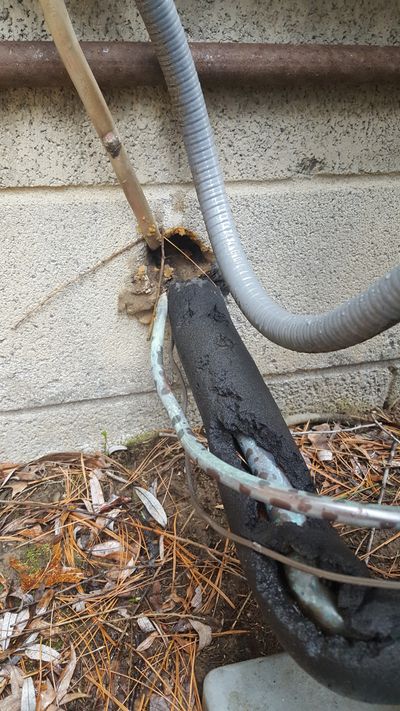Getting Your Camp Ready For the Winter
/Mice and rats are two of the most common invaders of residential homes and commercial businesses. The first step is a thorough inspection of the property to identify the areas of high activity as well as potential entry points that they are using. Remember, mice only need about a 1/4 inch gap to get in! Photo courtesy Upstate Wildlife Control.
By Stephanie Fereiro
Summer days have come and gone, and for many, it’s almost time to close up the camp and say “goodbye” until next spring. Check these 10 steps off your list as you prepare to leave your home-away-from-home for the season:
Inspect your septic tank. If your cottage has a septic system, be sure to follow the manufacturer’s service recommendations and timelines. If your system is due for an inspection, call in a professional to make sure it’s functioning properly before you close up to avoid any surprises in the spring.
Keep the sump pump pumping. If your cottage has a sump pump, make sure it stays in good working order all winter long, or you could experience flooding when the snow starts to melt.
Drain your pipes. Turn off your water supply and drain your pipes and all water containers to prevent them from freezing (and possibly bursting).
Clean your gutters. Clogged gutters can cause water to back up under your shingles, leading to a leaky roof. Once all of the leaves have fallen off the nearby trees, clean out your gutters so rain and melting snow can flow free.
Inspect your roof. Snow buildup over the winter can cause roofs to leak or even cave in, so replace broken or missing shingles before the winter weather sets in.
Keep pesky pests outdoors. Upstate Wildlife Control, a proud sponsor of Schroon Laker, is your go to for keeping every pest imaginable out of your cabin. Check for any openings small animals may be able to squeeze through to make their way into your cottage. If you have a chimney, use a chimney cap or cover to stop unwanted visitors from getting in.
Unplug major appliances. While it might not be a good idea to turn off your entire power supply (this could cause your sump pump, exterior lighting, and alarm system to stop working), unplugging larger appliances or turning off the power to these appliances can help prevent electrical fires and other issues.
Turn the heating down (or off). If your cottage has a furnace, consider setting the thermostat to around 10°C to prevent frost build-up, or turn it off entirely to save energy — but only if you’ve properly prepared your pipes to prevent freezing. If you opt for the latter, be sure to turn the gas off, too. If you use space heaters, turn off their power supply on your electrical panel.
Get rid of fire hazards. Pack up and remove loose paper products (like books and newspapers), old rags, chemicals, and other items that could easily catch or spread fire.
Clean out the fridge and cupboards. Food can attract insects and animals. When you’re ready to call it a season, pack up all food (even dry and canned goods) and take it home with you.
Before you lock up and head home, make sure you check your seasonal property insurance policy or talk to your broker, as your insurance company may require you to take other precautions, such as checking in on your property at certain time intervals or installing a monitored alarm system.










